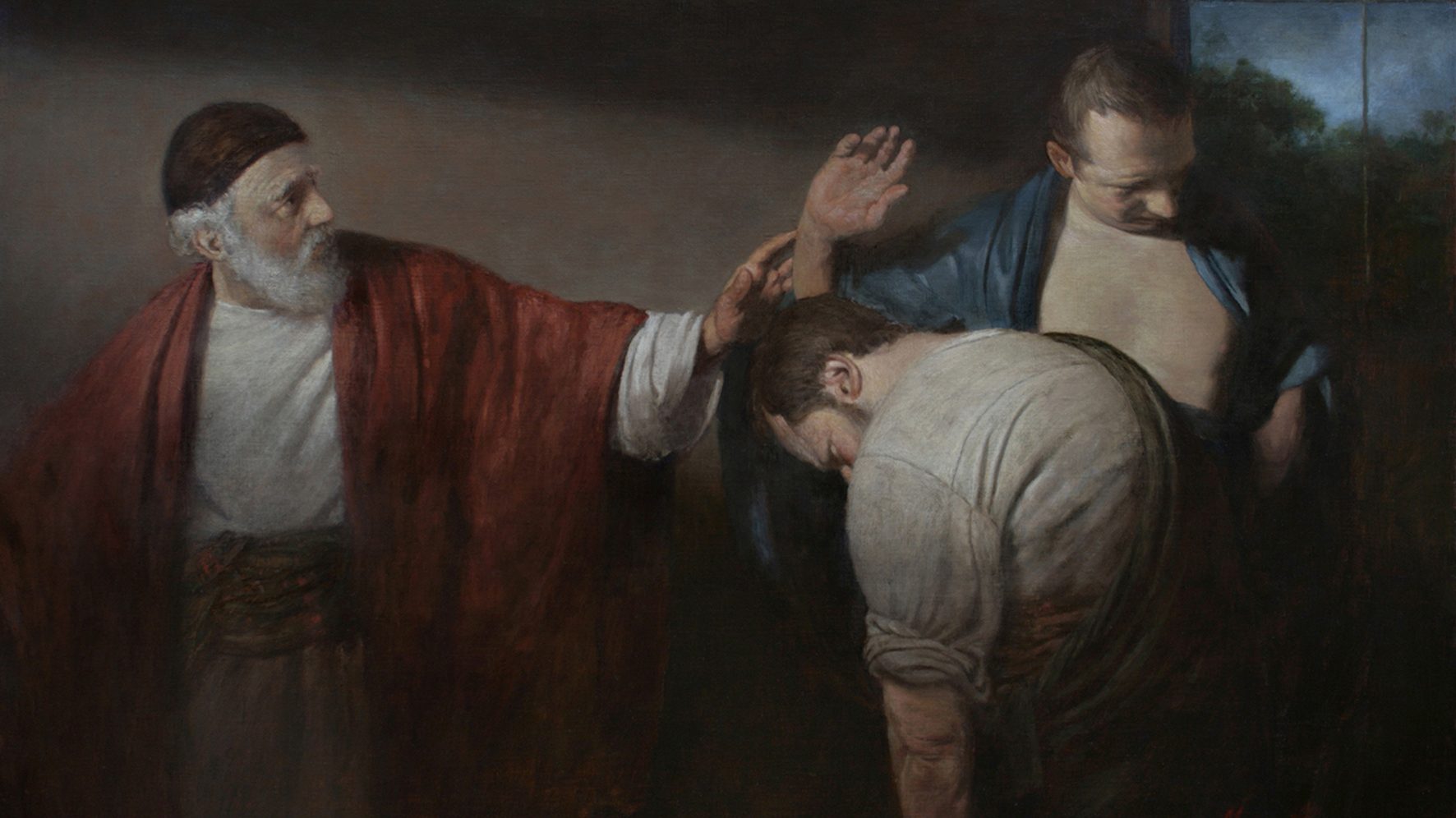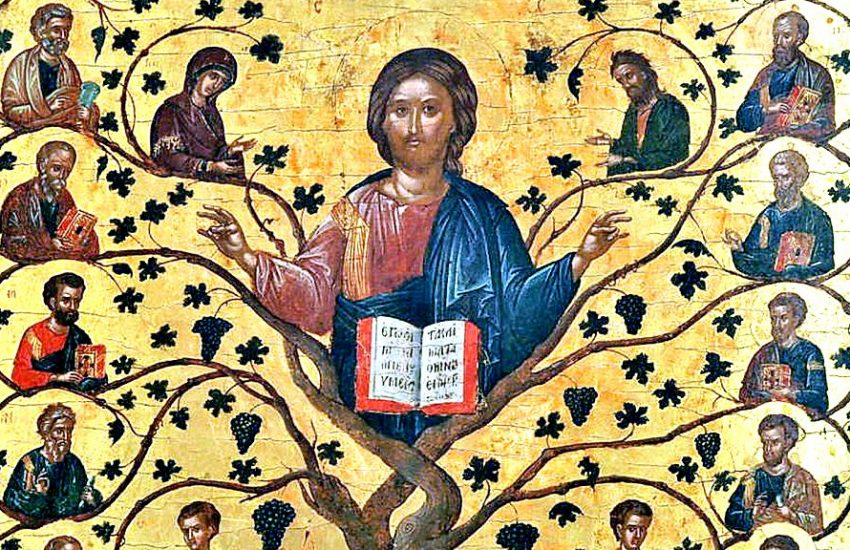A Parable of Forgiveness
Fourth Sunday of Lent (C)
The gospel for this Sunday is the parable of the Prodigal Son (Lk 15:11-32). It’s a parable, meaning it is a story being told by Jesus, and not an historical event. But that doesn’t mean it’s fictional. It’s a true story. It is the very real and very true story of the Father’s love for us and how eager and willing God is to forgive us of whatever wrongs we may do, provided we do the most important thing the Prodigal Son did, which is “get up and go to [his] Father” (Lk 15:20).
What did the son in the story do that was so bad? Plenty. First he demanded his share of his father’s inheritance immediately. All the wealth that he stood to inherit upon his father’s death he wanted now. Can you imagine how hateful it would sound if you told your parents, “I wish you were dead already so I could have your stuff?” That’s basically what this son said to his dad. The crazy thing is that his dad gave it to him!
What’s worst is that the son didn’t even put this inheritance to good use. He went out and wasted it all (the word “prodigal” means “wasteful”). The gospel says he “squandered his inheritance on a life of dissipation” (Lk 15:13). We can imagine what that might have entailed. Even though he had been given a lot, he wasted it all on unworthy things and eventually found himself at the bottom of the barrel. Not having many other options, he got a job doing just about the worst thing a Jewish person could have done at the time, which was to tend swine (pigs being considered a most unclean animal).
He reached such a low point that he found himself looking at the slop he was feeding the pigs, wishing he could eat their food. At that point it hit him. This was ridiculous. He had been foolish. He had been prideful. He had wasted all he had been given. The gospel tells us that he came to his senses (Lk 15:17). He needed to go home.
He didn’t dare expect his father to take him back, but realizing that even the servants in his father’s house were better off than he was, he decided to go back to his father, apologize, and ask to be hired on as a servant. Even that was more than he knew he deserved, but he swallowed his pride and prepared what he was going to say.
I shall get up and go to my father and I shall say to him, “Father, I have sinned against heaven and against you. I no longer deserve to be called your son; treat me as you would treat one of your hired workers.”
Lk 15:18-19
So he gets up and starts walking home. This is where things get interesting. Remember, Jesus tells this story as an illustration of how eager our heavenly Father is to forgive us our sins.
While the son was still a long way off, the gospel tells us, his father saw him and was filled with compassion. He runs to him, embraces him, and kisses him (Lk 15:20). This tells us several important things. First, the father saw him while he was a long way off. That meant the father was looking for him. Second, the father runs out to meet him. The father doesn’t wait for the son to make the long, shameful walk back to his door. The father runs out to meet him where he is. I’ve heard it said (and I don’t doubt that it is true) that running was considered undignified behavior for Jewish men. It was something children indulged in, but grown men walked. They only ran if it was an emergency. But welcoming back his son was considered an emergency by this father. He was willing to appear foolish to meet his son that much sooner.
Notice, too, that before the son even speaks, the father has embraced him and kissed him. Reconciliation has already begun. When the son does begin to speak, all he gets out is, “Father, I have sinned against heaven and against you; I no longer deserve to be called your son” (Lk 15:21). And that’s as far as he gets. He doesn’t have the chance to ask to be hired on as a servant. The father doesn’t let him finish. He has said enough. He orders his servants to bring the finest robe to place on his son’s shoulders, sandals for his feet, and a ring for his finger. He has them slaughter the fattened calf and prepare a feast, “because this son of mine was dead, and has come to life again; he was lost, and has been found” (Lk 15:24). Then the celebration began.
Jesus uses this powerful imagery of a father welcoming back his wasteful son to illustrate to us the spiritual reality of what happens every time we repent from our sins; every time we “get up and return to our Father” in confession.
We may have been living our lives far from God. We may have wasted the many good things God has given to us. We may have made foolish and selfish decisions, and we may now find ourselves in a place we do not want to be. But we don’t have to stay there. We can, like the prodigal son, come to our senses. We can, if we have the least bit of humility that he demonstrated, get up, like he did, and go back to our Father. We can walk into that confessional and say, “Father, forgive me for I have sinned.”
When we do — every time we do, without exception — our heavenly Father runs to meet us. It doesn’t matter what our sins might be. He embraces us. He kisses us. He orders His servants, the angels, to cloth us with heavenly garments and prepare a feast. There is a party in heaven every time a sinner repents. Confession isn’t about sin. It’s about reconciliation and forgiveness. God is eager to forgive us, because that’s how much He loves us. That’s the heart of the Father that is revealed to us by Jesus in the very true parable of the prodigal son.
It doesn’t matter how far away you’ve strayed or how wasteful you have been with your blessings. Come home. You are welcome. There is no reason to fear the Father’s love.



